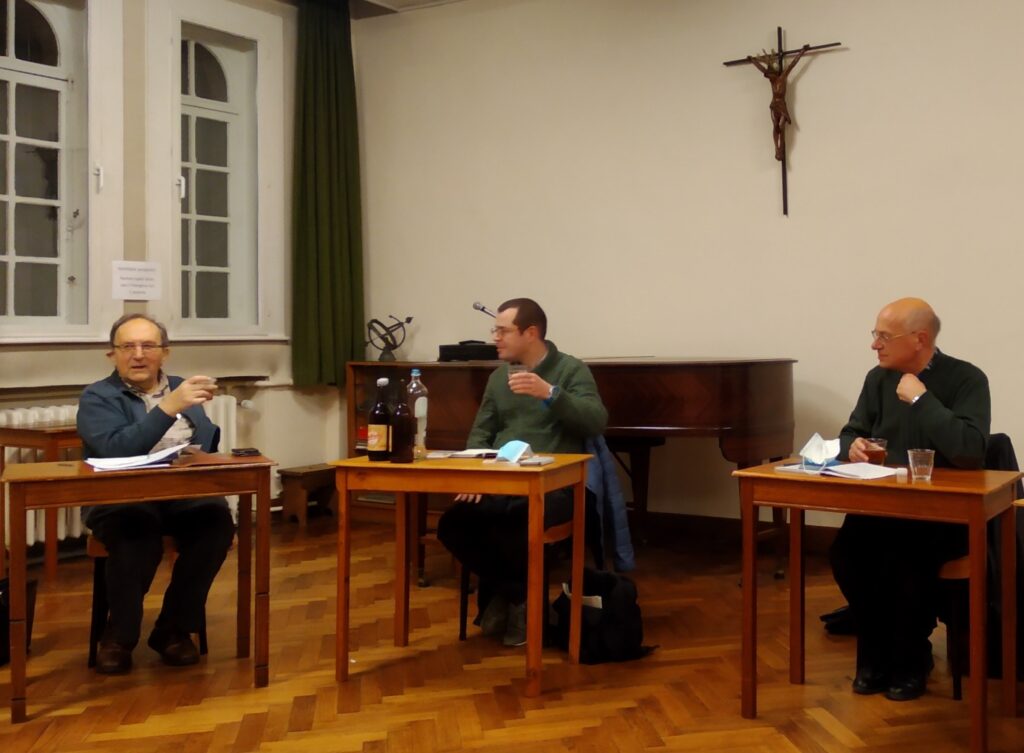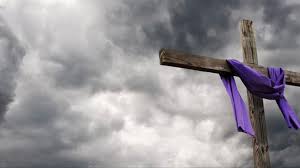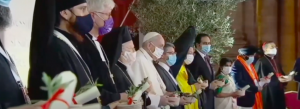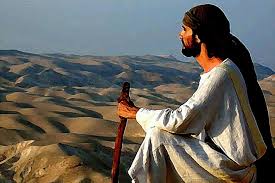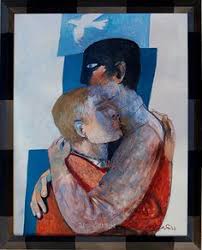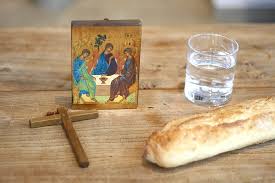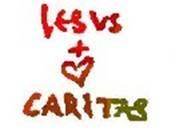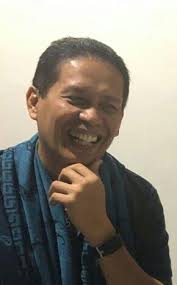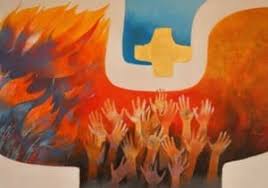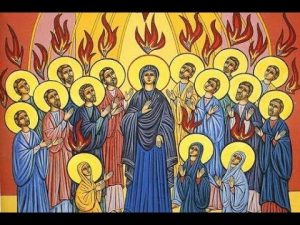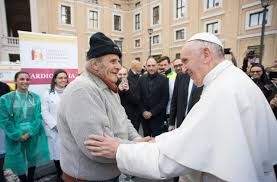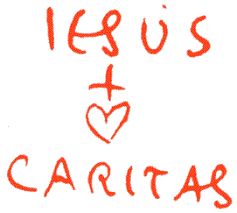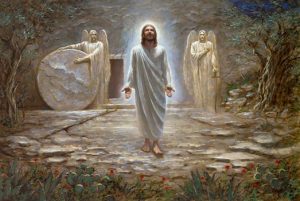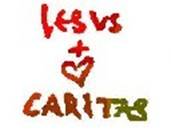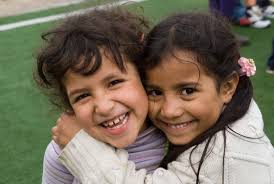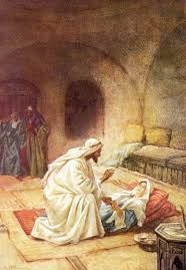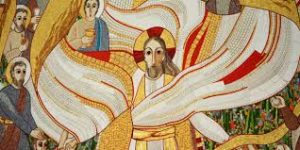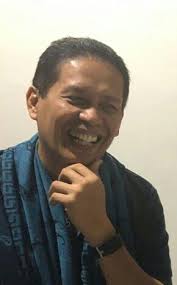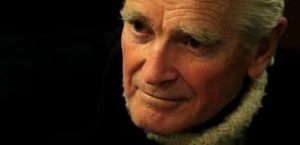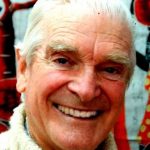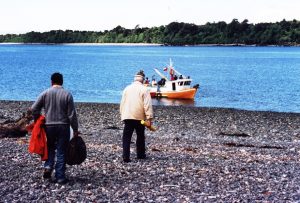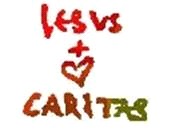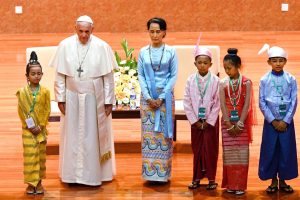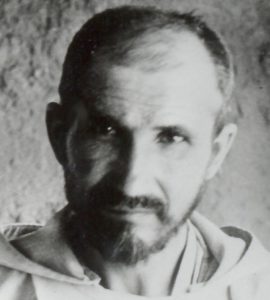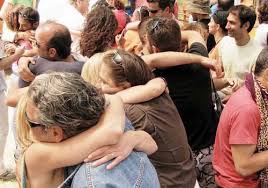EASTER LETTER TO THE BROTHERS AROUND THE WORLD
FROM OPEN TOMBS TO NEW PATHWAYS OF HOPE
“You who have made me see many troubles and calamities will revive me again; from the depths of the earth, you will bring me up again.” (Psalm 71:20)
“You who dwell in the dust, awake and sing for joy! For your dew is a dew of light, and the earth will give birth to the dead.” (Isaiah 26:19)
“And many of those who sleep in the dust of the earth shall awake, some to everlasting life, and some to shame and everlasting contempt.” (Daniel 12:2)
“We are an Easter people,” as Cardinal Luis Antonio Tagle puts it in one of his books. The Easter reality is reminding us that amidst all the violence, there is a much greater reality of peace in our world today. This is not some kind of magic formula but an expanding and deepened consciousness that springs from the depths of the earth overflowing into every reality of our world. The way to move to this Easter reality is to see humanity and the world through the lens of God who raised Jesus from the dead. In God, the whole universe is birthing with the joy of new life in the Risen Christ in spite of everything that tries to sabotage this life. We thrive on as people of hope, mature children of the light even when death and darkness seem to be the predominant reality today. We continue to be ambassadors of hope amidst the realities of war and violence in Ukraine, Myanmar, Haiti, Afghanistan, of poverty and inequality in the countries of Africa and Asia, of ecological destruction that takes a heavy toll on the poorer sectors of a country, economic meltdown, political rivalries that try to cancel one another, of the pandemic that gravely affects the vulnerable and the poor across the globe. The list goes on.
Hope of new life in the Risen Christ is an antidote to the prevailing attitudes against the dark realities of today –that of wishful thinking as a way of denial or escape from reality or being too enmeshed in our dark reality that we become prisoners of gloom and utter helplessness or that of doing everything possible to survive, thinking only of our own private good without regard for the common good and care for our common home. Hope is not a flight from but a going through the dark tunnel of reality with a leap of trust to the Giver of Life and Light, the God who is always ahead and beyond. Hope is a loving surrender to the truth that death is not the final say to everything even if evil seems to have the upper hand. The challenge of Hope today is to build fraternities of hope, people who journey together, have a positive regard for one another, listen to one another with respect and discern where humanity has become part of the problem rather than part of the solution to the ills of our world. As people of hope, we walk together as brothers with our sisters towards the realization of God’s dream for our world today in the Risen Christ. Individual efforts could only do as much. Our world today is groaning for a new world order that is shared, grounded in the Easter message of hope.
But first things first. Let us first recognize together where our world’s tombs are of which God in the Risen Christ is willing to open with us and through us. Overt war, poverty, destruction of the environment, migration, global divide are symptoms of ill will buried in the tombs of human hearts. Greed, indifference, violence, resentment, hatred are concomitant human dispositions that are based on disrespect, distrust, distortion of values, blindness of the goodness of the other and of the world. These dispositions become mental attitudes that foment structures of violence, injustice, abuse of power that cloud the mind and numb the heart of individuals in a system. Collectively, it becomes a culture wherein untruth becomes true, darkness becomes light in a very distorted way. Hope is rooted in a firm conviction that God alone in the Risen Christ could open our tombs and transform our ill will to good will. Left to ourselves, we are too blind, wounded, broken, and helpless.
And so, we hope together as brothers with our sisters in the journey. Starting from our local fraternities, faithful to our spiritual practices of review of life, desert day, adoration, fraternity meeting, we gift hope to our world today, one day at a time. We dialogue and discern together where the Spirit is leading us – personally, communally, globally. No one stands alone. Every personal listening is a global listening. But the activity is mainly that of God in the Risen Christ. Ours is to listen deeply and cooperate to God’s saving and even repairing activity of our beautiful world. The activity of hope grounds itself from Jesus’s gift of the passion (from the Latin word, passio, meaning non-activity) Jesus saves the world primarily from his passivity on the cross more than his activity of healing and preaching. When we feel beaten up, misunderstood, humiliated, not in control, mistreated in our offer of love and goodness to others, we are undergoing our passion as lovers of humanity. Here and only here are we invited to pose a moral question – how will we respond to evil? What kind of heart shall we offer to perpetrators of evil? What kind of lives are we willing to give to our world today? Unforgiving or forgiving? Angry or sober? resentful or loving? Only when Jesus freely offered his forgiveness to humanity that rejects his offer of love that the Father gave him the new life.
We are invited to be heralds of this new life to our wounded, violent and fragmented world. We hold both our joy and our sorrows, our indifference and our care, our fears and our willingness to be sent. May our universal Brother, St Charles de Foucauld continue to inspire and accompany us in our desire to cry the gospel with our lives. May his recognition as a saint be an impetus for our church today that is envisioning herself as brother and sister to all, missionary to the peripheries, a prophet of dialogue and of care for our common home.
Eric Lozada



